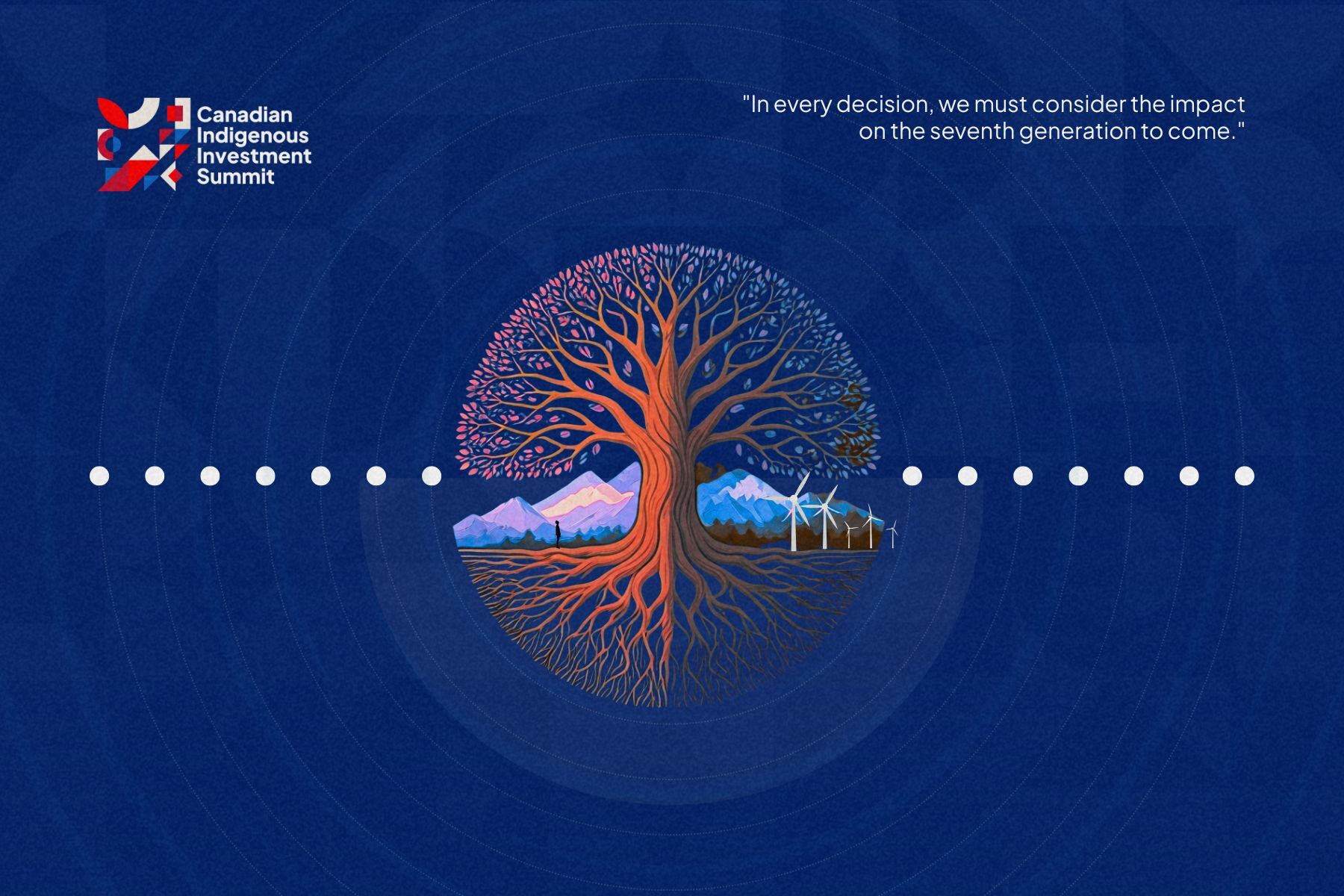Seven Generations thinking is a centuries-old Indigenous philosophy, requiring decision-makers to consider impacts 150-200 years into the future, that is quietly revolutionising how sustainability-focused investors should approach long-term value creation.

While typical investment managers obsess over quarterly earnings, a growing cohort of investment firms and Indigenous-led businesses are proving that thinking seven generations ahead delivers superior returns while building resilient, regenerative enterprises, aligning with global sustainable investment mandates. This isn't just philosophical idealism meeting practical finance—it's a fundamental reimagining of what successful business looks like when viewed through the lens of intergenerational responsibility.
Seven Generations thinking has been linked back to the Haudenosaunee (Iroquois) Confederacy's Great Law of Peace, which mandates that "in every deliberation, we must consider the impact on the seventh generation to come." Unlike modern business cycles that focus on quarterly results, this approach requires evaluating every decision against its consequences for descendants seven generations into the future—roughly 150-200 years. This framework transforms decision-making from reactive profit optimisation to proactive stewardship, creating what Indigenous scholars call a "responsibility-based" approach to wealth creation.
Contemporary Indigenous enterprises are demonstrating how traditional wisdom translates into modern commercial success. Seven Generations Capital, an Indigenous-owned private real estate investment firm in Canada, explicitly states its approach is "guided by our values and long-term orientation," focusing on projects that provide "material benefits for economic development, climate and local communities" while promoting "shared ownership and cultural strengthening." This is in line with many of the other firms and opportunities that the Canadian Indigenous Investment Summit.
As modern ESG principles adapt and react to challenges in providing a consistent framework converging with the Indigenous Seven Generations thinking, is a huge opportunity for institutional investors. In particular, as global ESG AUM is projected to reach $34 trillion by 2026.
We are already seeing non-Indigenous led firms begin to take advantage of this thinking, with organisations such SevenGen, a European sustainable investment firm, explicitly uses Seven Generations thinking in their climate impact investments, focusing on "thinking beyond generations." As well as Generation Investment Management6, co-founded by Al Gore, managing investment strategies with an explicit focus on "investing for future generations,". Both firms are demonstrating how traditional Indigenous wisdom is being formalised and adopted by institutional finance.
This is not just about wider stewardship; companies that embrace longer-term thinking consistently outperform their short-term focused counterparts. McKinsey's Corporate Horizon Index analysis found that long-term companies delivered 47% higher revenue growth, 36% higher earnings, and created 12,000 more jobs per company over 15-year periods compared to quarterly-focused peers.
While powerful in principle and beginning to show promise in practice, implementing Seven Generations thinking in modern business requires navigating practical constraints. 70% of companies cite high upfront costs as barriers to long-term sustainability investments, while activist investors continue demanding immediate returns. Yet, innovative companies are finding hybrid approaches. They're creating legal structures like benefit corporations that embed stakeholder consideration, implementing CEO compensation tied to multi-year sustainability metrics, and developing transparent communication strategies that educate investors about long-term value creation.
Seven Generations thinking offers more than sustainability messaging—it provides a tested framework for building businesses that thrive across centuries rather than quarters. As climate risks intensify and stakeholder expectations evolve, investors are discovering that Indigenous approaches to long-term value creation aren't just morally compelling but financially superior. The convergence of ancient Indigenous wisdom with modern sustainable finance represents a fundamental shift toward investment approaches that honour both ancestral knowledge and future responsibility. For investors serious about sustainability, Seven Generations thinking isn't just another ESG framework—it's a proven approach to building wealth that sustains communities, environments, and economies across the vast sweep of time.
The Practical Implementation of Seven Generations Principles in Major Infrastructure Projects
The transition from theory to practice becomes particularly compelling when examining how Seven Generations thinking reshapes major energy and infrastructure investments across Canada. Unlike conventional project development, which prioritises immediate financial returns and regulatory compliance, Indigenous-led projects incorporating this philosophy fundamentally reconfigure risk assessment, stakeholder engagement, and success metrics. This approach is particularly relevant as global infrastructure investment needs are estimated at $79 trillion through 2040, with increasing emphasis on sustainable and socially responsible development.
Indigenous communities applying Seven Generations thinking to infrastructure projects consistently demonstrate superior long-term performance through comprehensive impact assessment that extends far beyond traditional financial modelling. These projects evaluate environmental regeneration over decades, community capacity building across generations, and cultural preservation alongside economic development. For instance, Indigenous-led renewable energy projects in Canada routinely incorporate land restoration timelines spanning 50-100 years, creating investment vehicles that generate returns through multiple economic cycles while building environmental and social resilience.
This methodology proves particularly valuable for institutional investors seeking to navigate increasingly complex regulatory environments where Indigenous consultation and partnership have become essential for project approval. The relationship-first approach central to Seven Generations thinking provides a framework for authentic engagement that satisfies legal requirements whilst creating genuine community partnerships. Corporate investors working within this framework report significantly reduced project delays, lower regulatory risks, and enhanced community support compared to conventional consultation approaches.
The financial implications extend beyond risk mitigation to value creation through innovative partnership structures. Indigenous communities applying Seven Generations principles often develop revenue-sharing models that align investor returns with long-term community development, creating investment opportunities that strengthen rather than extract from local economies. These partnerships frequently include provisions for community ownership stakes, skills development programmes, and environmental stewardship responsibilities that create sustainable economic foundations extending far beyond individual project lifecycles, demonstrating how traditional Indigenous wisdom can enhance rather than constrain modern investment strategies.
